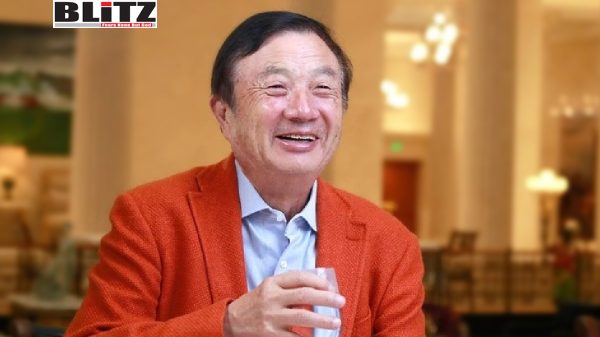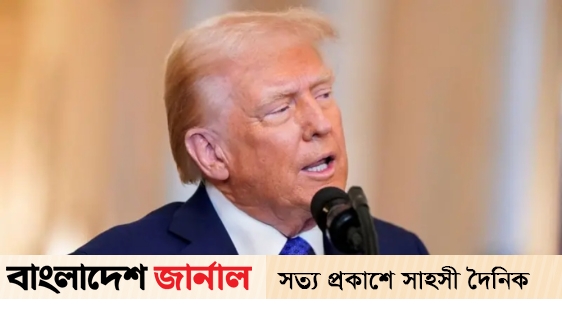China is recalibrating its tech policy, elevating private enterprise to counter US export controls and drive innovation
On June 10, 2025, as trade negotiators from the United States and China gathered in London for another round of contentious talks, a different kind of negotiation played out on the front page of The People’s Daily, China’s most prominent state-run newspaper. The paper featured an extensive interview with Ren Zhengfei, the founder of Huawei, an unprecedented move for a private entrepreneur. Historically, such editorial prominence has been reserved exclusively for senior Communist Party officials, making this a calculated and deliberate political statement. Observers quickly recognized this as a message likely orchestrated by China’s top leader, Xi Jinping. The headline, “The More Open a Country Is, the More It Drives Us to Progress”, was not just a business slogan but a clear signal of China’s shifting strategy on technology, private enterprise, and its rivalry with the United States.
For much of the last decade, China’s private tech sector has operated under an atmosphere of heightened scrutiny and uncertainty. A sweeping regulatory crackdown beginning in 2021 targeted major players like Alibaba, Tencent, and Didi, sending shockwaves through the business world. Entrepreneurs like Jack Ma, once symbols of Chinese innovation, disappeared from the public eye. Venture capital dried up, risk-taking diminished, and the message from Beijing was clear: private enterprises could exist, but only within the Party’s strict boundaries.
However, the global landscape has evolved dramatically since then. The COVID-19 pandemic exposed vulnerabilities in global supply chains, while the rapid rise of generative AI reshaped technological priorities worldwide. Simultaneously, the United States tightened export controls, blacklisting Chinese companies and restricting access to advanced semiconductors. In response, China is recalibrating its approach to technology and innovation. Ren’s interview reflects this pivot: while the state maintains control, it is now encouraging private enterprise to play a more significant role – provided it aligns with national interests.
Ren Zhengfei’s appearance in The People’s Daily was no coincidence. His image as the resilient leader of Huawei, a company that has withstood years of US sanctions and the high-profile detention of his daughter, Meng Wanzhou, underscores the new narrative Beijing wants to project. As a Chinese commentator noted, “The People’s Daily is using Ren Zhengfei’s voice to say: the country has not abandoned private enterprise. In fact, private firms are critical to overcoming technological blockades”.
In the interview, Ren strikes a tone of determination and resilience. He acknowledges the challenges – Huawei’s chip technology still lags behind the US by a generation – but emphasizes the importance of perseverance. He highlights Huawei’s strategy of using “mathematics supplementing physics” and cluster computing to meet application demands. His message is clear: progress will come not by lamenting difficulties but through steady, incremental effort.
Ren’s emphasis, however, is less on hardware and more on people – specifically scientists and researchers. He recounts the stories of innovators like Nobel laureate Tu Youyou and geophysicist Huang Danian, whose groundbreaking work was often dismissed as impractical but ultimately proved transformative. “If we don’t invest in basic research”, Ren warns, “we lack roots. Even if the leaves are lush, a strong wind will knock them down”.
Huawei exemplifies this philosophy, dedicating one-third of its US$25 billion annual R&D budget to basic research with no immediate commercial payoff. This long-term commitment reflects a uniquely Chinese approach to innovation: a willingness to invest heavily and endure setbacks in pursuit of technological self-reliance.
Despite its label as a private company, Huawei’s success is deeply intertwined with state support. Analysts argue that Huawei’s rise would not have been possible without government backing in the form of preferential procurement policies, access to capital, and its quasi-military corporate culture. “Ren Zhengfei’s role today mirrors that of Rong Yiren during China’s reform era – a model entrepreneur benefiting from state resources”, one policy expert remarked.
The relationship between Huawei and the Chinese government is symbiotic. As a national champion, Huawei is vital to China’s efforts to counter US technological pressure. In turn, the company relies on government resources and protection to maintain its position. This dynamic reflects China’s model of “state-guided entrepreneurship”, which differs sharply from the free-market capitalism of Silicon Valley.
Ren’s interview also signals a broader shift in China’s approach to artificial intelligence (AI), particularly generative AI. Initially cautious due to concerns over control and disruption, Beijing has now embraced AI development with renewed intensity. This pivot has been galvanized by the emergence of DeepSeek, a domestic large language model (LLM) approaching the capabilities of GPT-4. DeepSeek’s success has boosted confidence that China can overcome US technological barriers and establish itself as a global AI leader.
China’s AI strategy is a unique blend of state guidance, private-sector innovation, and open-source collaboration. The government has established a “National AI Team” comprising leading private firms and launched platforms for data sharing and collaborative research. This ecosystem allows for rapid scaling of AI breakthroughs, contrasting with the more proprietary models favored by US tech giants.
A recurring theme in Ren’s interview is the importance of foundational science. He draws parallels to a landmark moment in China’s history: Deng Xiaoping’s 1978 “Science and Technology Conference”, which marked the country’s post-Cultural Revolution commitment to modernization through science. Deng used science both as a political tool and as a means of legitimizing his reforms. Similarly, Xi Jinping is leveraging high-tech nationalism to consolidate authority and inspire public unity amid slowing economic growth and global decoupling.
The headline of Ren’s interview – “The More Open a Country Is, the More It Drives Us to Progress” – was clearly intended for both domestic and international audiences. At a time when US policies restrict Chinese access to advanced technology and education opportunities, Beijing is positioning itself as a champion of openness. Yet this rhetoric contrasts sharply with China’s restrictive domestic policies, particularly in the tech sector, where AI laws emphasize alignment with “core socialist values” and strict Party oversight.
Domestically, Ren’s message is also a rallying cry. As China faces economic challenges, youth unemployment, and declining private investment, Xi Jinping is using figures like Ren to rebuild trust with the private sector and foster a sense of shared purpose. The narrative of “self-reliance under siege” is designed to motivate a new generation of scientists, engineers, and entrepreneurs to endure hardship and contribute to national rejuvenation. However, as some analysts caution, patriotic spirit alone cannot replace structural reforms in intellectual property protection, regulatory clarity, or access to capital.
Ren’s comments also serve as a direct rebuttal to US export controls, which have targeted Huawei since 2018. While these measures have slowed China’s progress in certain areas, they have also spurred significant domestic investment and innovation. Huawei’s recent advancements in 5G technology and AI chips demonstrate the country’s growing ability to circumvent US restrictions.
China’s recalibrated tech strategy reflects both confidence and pragmatism. By embracing private enterprise, prioritizing basic research, and leveraging state-guided collaboration, Beijing is adapting to a rapidly changing global landscape. For the United States, the challenge lies not in blocking China’s progress but in maintaining its own openness and fostering innovation.
Ultimately, the race is not about who can outcompete the other but about who can build a system that is resilient, inclusive, and forward-looking. Ren Zhengfei’s interview is a testament to China’s ambitions – and a reminder of the stakes for both nations.
Please follow Blitz on Google News Channel
An internationally acclaimed multi-award-winning anti-militancy journalist, writer, research-scholar, counterterrorism specialist and editor of Blitz. He regularly writes for local and international newspapers on diversified topics, including international relations, politics, diplomacy, security and counterterrorism. Follow him on ‘X’ @Salah_Shoaib
china-is-recalibrating-its-tech-policy-elevating-private-enterprise-to-counter-us-export-controls-and-drive-innovation















Leave a Reply